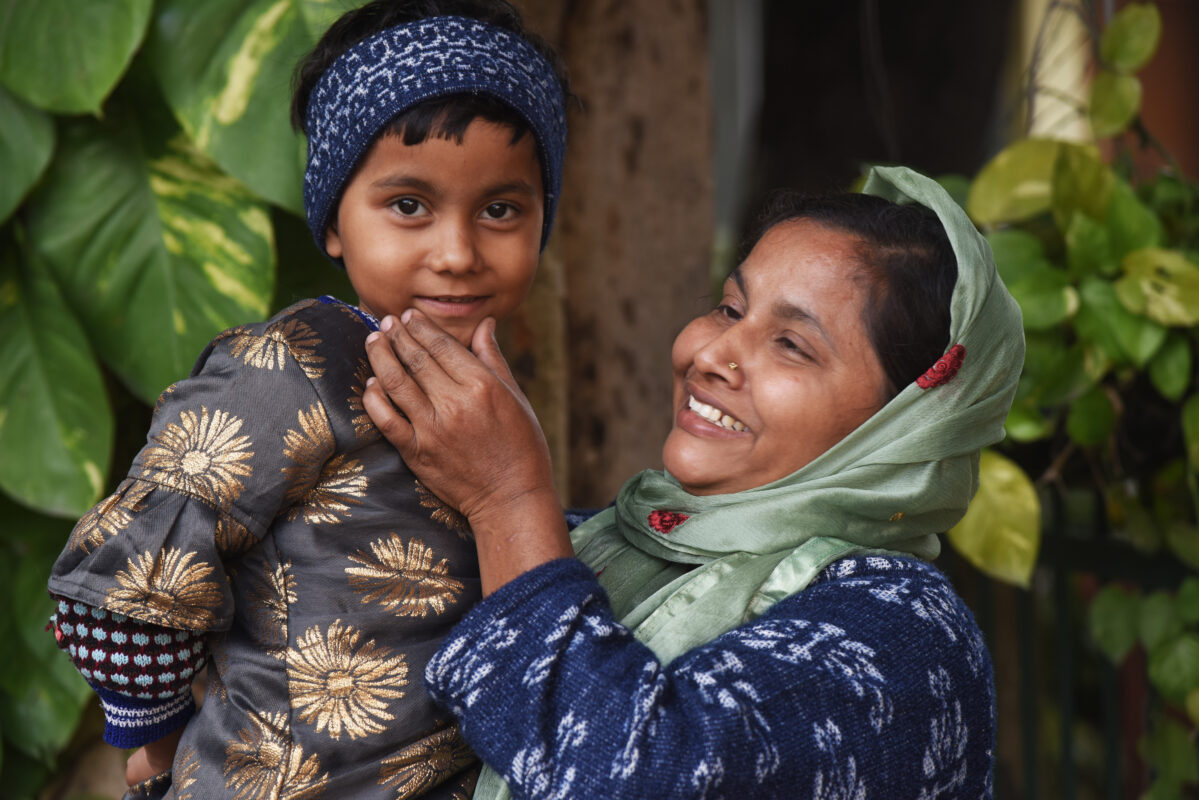Despite leaving school early to be married, Nuzhat, a skilled seamstress and embroiderer, is now a successful businesswoman, supporting her children through her tailoring business.
Nuzhat, 23, and her young family live in a one-room home in Bihar, eastern India. Like many young women in her community, Nuzhat married young, at 15, and had to drop out of school.
UN figures show that almost 130 million girls worldwide are out of school. Early marriage and motherhood force many girls to leave school early, at great cost to their own prospects and those of their children. Despite making significant progress in reducing early marriage, India is still home to the highest number of child brides in the world – almost a third of the global total.
Determined to build a better life for herself and her children, Nuzhat later went back to the classroom to continue her studies while pregnant, even taking her exams with her baby in her lap. And building on the sewing and business skills she learned from Project Lehar, Nuzhat has now set up a tailoring business to help support her family.
Enabling entrepreneurship
Project Lehar is run by the Aga Khan Foundation with support from King’s Trust International. It offers vocational training, entrepreneurship and life skills courses for girls and young women from low-income backgrounds. It also supports girls who left school early to complete their education.
‘The programme, the Lehar centre and the teachers have been some of the most important parts of my life,’ Nuzhat explains. ‘The stitching and the enterprise skills helped me plan my work better and earn for myself.’
Lehar provided Nuzhat with two sewing machines to help her kickstart her venture, and with training to build the key skills she would need to succeed – topics such as budgeting, saving, negotiating and problem solving. This latter ability enabled Nuzhat to persevere and progress her business step-by-step, despite the inevitable setbacks. ‘Lehar and the support has made me independent and led me to think rationally, and one step at a time,’ she explains.
Nuzhat’s business is unique in her community because she focuses on making men’s clothes, travelling back and forth by train from her brother’s home to take orders and deliver the finished garments.
‘Women or girls in [my community] do not learn to stitch gents’ clothes. I have learnt it from my brother,’ she explains. ‘Now I take orders from him to stitch shirts and other clothes and make money.’

Breaking the mould
Nuzhat’s work and travel has prompted some disapproval in her community, a low-income neighbourhood where women’s mobility outside the home is limited, and it is very rare for them to make business trips. But Nuzhat has remained focused on her priority – providing for her children – and has shrugged off the criticism, breaking the mould and blazing a trail for others to follow.
‘I have stopped paying attention to people in my neighbourhood who used to comment…and say bad things about me,’ she says. ‘Now they see that with all that I do, not only I am supporting the house, but also feeding my children and even my husband sometimes.‘
Nuzhat has now started diversifying her services to include embroidery as well as tailoring, and she continues to study. Even now she has completed the training courses at Lehar, Nuzhat remains a regular visitor – volunteering to support and induct new trainees who are just starting the programme she benefited from, and helping facilitators to deliver course content.

